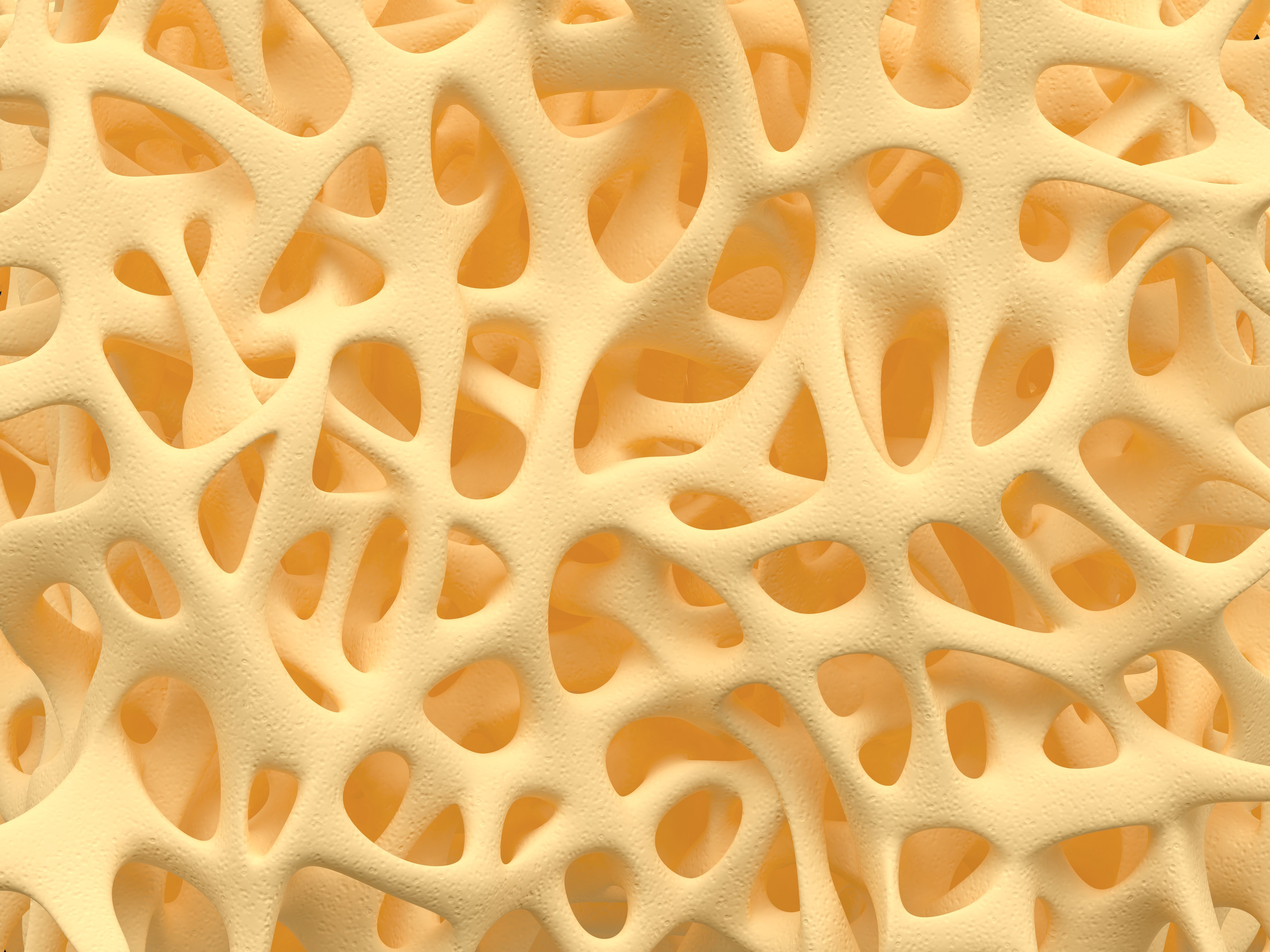- Bone Health
- Immunology
- Hematology
- Respiratory
- Dermatology
- Diabetes
- Gastroenterology
- Neurology
- Oncology
- Ophthalmology
- Rare Disease
- Rheumatology
Biosimilar Teriparatide Improves BMD for Patients With Osteoporosis, Study Finds
Biosimilar teriparatide improves bone mineral density (BMD) when patients with osteoporosis are treated for a year or more.
Researchers saw substantial improvements in bone mineral density (BMD) in patients with osteoporosis after treatment with biosimilar teriparatide for a year or more, according to Bone Reports.
The biosimilar teriparatide can be weighed as an effective treatment option in female and male patients with osteoporosis. Teriparatide is a recombinant analog of the parathyroid hormone and an anabolic treatment approach for osteoporosis.
close-up of bone

Researchers were trying to review the effectiveness of biosimilar teriparatide in patients with osteoporosis after at least a year of treatment.
First, a multi-center, single-arm study was conducted. A total of 239 patients received subcutaneous injections of biosimilar teriparatide 20 μg once a day for a year minimum.
The change in BMD T-score from baseline (pre-treatment) to end of the study (post-treatment) was the main outcome measure. Additionally, the change in the fracture risk assessment tool (FRAX) score was calculated to guess the 10-year probability of major and hip fractures pre- and post-treatment.
Then, a total of 239 patients were included, 27.62%, 14.64%, and 57.74% of which received biosimilar teriparatide for 12-16 months, 17-20 months, and 21-24 months, respectively. The T-score (SD) at the lumbar spine grew from –2.67 (1.04) to –2.26 (–1.11) from baseline to the end of the study (mean percent change, 13.07 [–62.89]; P < .001) . Likewise, the T-score at femoral nice grew from 2.18 (0.87) to –2.09 (0.93; mean percent change, 3.81 [31.52]; P = .006). The proportions of patients with maintained or improved BMD T-score at the lumbar spine and femoral next sites were 85.36% and 69.04%, respectively.
Comparable results were acquired in subgroups of patients with rheumatoid arthritis and those with a history of a previous fracture or parental hip fracture. FRAX scores did not significantly change during the study (P = .551 and .973 at the lumbar spine and femoral neck, respectively).
BMD measurement is the most common tool to measure risk fracture prediction in routine clinical practice, even though patient-reported outcomes give valuable information on the state of health for patients.
“In this study, we demonstrated the effectiveness of one to two years of treatment with the biosimilar teriparatide in patients with osteoporosis. These findings add to the available data for the biosimilar teriparatide and can be used in cost-benefit analyses and healthcare plans,” said the researchers.
Some limitations were present. The primary limitation was the single-arm uncontrolled design of the study. Additionally, researchers were not reporting fracture incidence during the study period.
The findings demonstrated improvements in BMD after treatment with biosimilar teriparatide.
“Our study included a reasonably large number of patients (n = 239) and further increased our understanding of the benefits of this biosimilar agent as a treatment option in patients with osteoporosis and at increased risk for fragility fractures,” concluded the researchers.
Reference
Soroush MG, Kheirandish M, Soroosh S. Changes in BMD T-score from pre-to post-treatment with biosimilar teriparatide: a single-arm, multi-center study. Published online May 25, 2023. doi: 10.1016/j.bonr.2023.101689
Newsletter
Where clinical, regulatory, and economic perspectives converge—sign up for Center for Biosimilars® emails to get expert insights on emerging treatment paradigms, biosimilar policy, and real-world outcomes that shape patient care.
